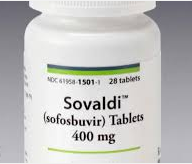 There are now multiple ongoing discussions about Sovaldi, Gilead s revolutionary drug for treating hepatitis C. The arguments are more or less what you ve seen for other expensive drugs, but the situation is quite different in this case.
There are now multiple ongoing discussions about Sovaldi, Gilead s revolutionary drug for treating hepatitis C. The arguments are more or less what you ve seen for other expensive drugs, but the situation is quite different in this case.
After 22 years of painstaking research virtually all of which was an abject failure the treatment of hepatitis C has gone from awful and modestly effective to almost painless and unimaginably effective.
It could be argued that these efforts undertaken by almost every major pharmaceutical company and several smaller ones represent a perfect model of how drug discovery can completely change the course of a disease. With the possible exception of HIV/AIDS, the war against hepatitis C could arguably be considered the perfect storm of research and subsequent impact.
This issue is discussed in Sunday s New York Times, which presents a very balanced discussion on costs, benefits, and effects of what happens when a major innovation comes along.
ACSH s Dr. Josh Bloom, previously a hepatitis C researcher has this to say:A discovery like this comes around maybe once or twice in a generation. Therefore, there isn t much of a precedent to rely upon. We are this close to being able to wipe out an infection that has affected about 200 million people worldwide four times that of HIV. And, when the hepatitis C virus is cleared from the body, it is gone for good, unlike HIV, which is effectively suppressed by drugs, yet never goes away.
Some highlights from the Times piece include the following:
- At $1,000 per pill $84,00 for a full twelve week course, Sovaldi is an easy target for those (especially politicians and advocacy groups) who reflexively criticize anything that comes from the pharmaceutical industry.
- Can our healthcare system afford it?
- Can our healthcare system afford not to fully exploit it?
- The previous standard of care was not only modestly effective at best, but was very difficult to tolerate (severe side effects), and almost as expensive.
- This expense will decline, because as more infections are wiped out, the demand for the drug will wane.
(Note: Gilead certainly knows this, and this is clearly built into their pricing structure.)
Dr. Bloom continues, Lost in this argument is that Sovaldi, despite its seemingly astronomical price, will almost certainly save on medical costs over time. The cost of previous standard of care wasn t t much less, and when you consider that Sovaldi will alleviate the need for most hepatitis C-related liver transplants over $500,000, plus anti rejection drugs for life it is seeming like a pretty good deal after all.
You can read his recent opinion piece regarding this issue, Are Hepatitis C Drugs Too Expensive? in his Science 2.0 column from this past May..


